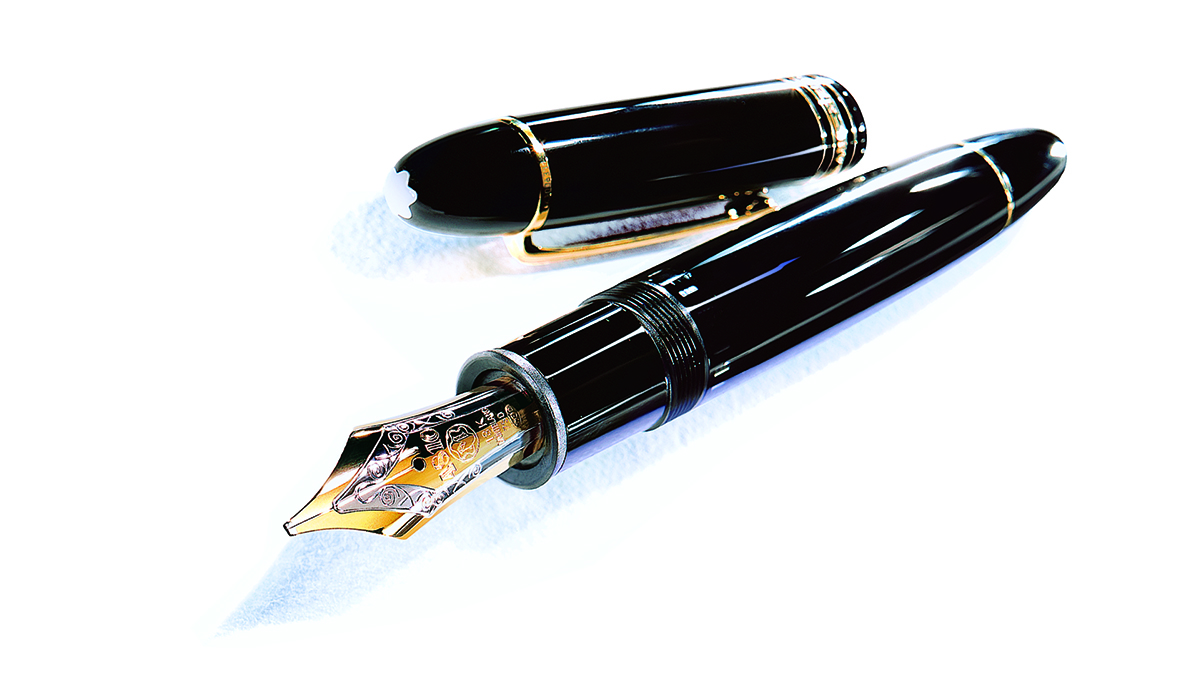From Parker to Montblanc: the appeal of the fountain pen
You could communicate by smartphone, but should you? A note penned with a nib, says Ken Kessler, confers pleasure to writer and receiver

A free daily email with the biggest news stories of the day – and the best features from TheWeek.com
You are now subscribed
Your newsletter sign-up was successful
It’s rare to receive a hand-written note these days. How many of us will sit down and actually write thank-yous for Christmas presents? We’re too far down the digital line to regard emails as somehow less polite, but some have suggested that a letter is evidence of superior education or ‘upbringing’.
Texting, email, Twitter, Facebook, Skype – all are instant and convenient, but they lack the physical touch inherent in a written note. No combination of keypad strokes can fully express the welcome of an invitation or sincere condolences.
If not constituting a genuine backlash against modern communications, there are pockets of resistance to electronic media. They have yet to replace Christmas or birthday cards, for example. Have you ever printed out an ‘e-card’?
The Week
Escape your echo chamber. Get the facts behind the news, plus analysis from multiple perspectives.

Sign up for The Week's Free Newsletters
From our morning news briefing to a weekly Good News Newsletter, get the best of The Week delivered directly to your inbox.
From our morning news briefing to a weekly Good News Newsletter, get the best of The Week delivered directly to your inbox.
Fondness remains for more traditional methods for writer and recipient alike. The sender can savour the time it takes for the ink to dry from a fountain pen’s nib, the tactile sensation of hand-cut notepapers, the act of sealing an envelope. Writers delight in knowing their recipients will be viewing words put to paper by their hands.
One Italian pen manufacturer, noting the challenges presented to his industry, stationery brands and even diary publishers, cited a Scottish educator who, some years ago, reinstated the compulsory use of the fountain pen at a private school. Enrico Franceschini of La Repubblica investigated and uncovered the tale of Bryan Lewis, headmaster of Erskine Stewart’s Melville Junior School in Edinburgh.
Having found that over 80 per cent of students could write only in upper-case letters, Lewis reintroduced compulsory use of fountain pens for pupils aged nine to 11. Ballpoints, pencils and computer keyboards were banned. In an article written in response to worldwide interest in his actions, he said, ‘To learn to write with a pen not only helps students to have better handwriting. It also has the significant advantage of increasing the pupils’ self-esteem.’
There is another tactile benefit to be had from writing by hand: the use of fine writing instruments. Along with objects as disparate as worry beads, wristwatches and carved Japanese netsuke toggles, a fine fountain pen is a joy to handle. Selecting one is as simple as finding a pen retailer who will match the pen to your hand size and writing technique. The former is addressed by the length of the barrel; the latter is determined by the width and rigidity of the nib.
A free daily email with the biggest news stories of the day – and the best features from TheWeek.com
You then choose a pen by subjective preference, starting with the classics. Every great pen company has an iconic model. Parker’s Duofold, launched in 1921, is a perennial; the white star on the lid of the ‘power pen’ of the Eighties, Montblanc’s omnipresent Meisterstück, peers out of many an executive’s coat pocket. Montegrappa’s Extra 1930 is as redolent of the decade as any Cole Porter song, while Caran d’Ache’s Ivanhoe embodies Swiss engineering in a writing tool.
Delta’s distinctive orange and black Dolcevita comes in every size imaginable, from the Mini to the Oversize, with a charming plump model called the Stout, for those who like a truly massive pen. Luxury brands ST Dupont, Cartier and Louis Vuitton offer pens that reflect the styles of their houses, while a number of watchmakers have added writing instruments to their ranges, including Breguet, Chopard, FP Journe, Ulysse Nardin and Romain Jerome. Dunhill’s pens are longstanding favourites, especially those hand-finished in Japan, in conjunction with Namiki.
A fine fountain pen is as personal as a toothbrush. You lend it to no one. You use it with a flourish, savouring the retro aspect as outmoded as pince-nez glasses or spats. And if an observer deems you a fogey – young or old – so be it. You’re proving that you know there is an ‘e’ in ‘text’!
KEN KESSLER has collected writing instruments for 20 years, despite 'appalling penmanship', and written about them for Stylus and How To Spend It; kenkessler.com
-
 Film reviews: ‘Send Help’ and ‘Private Life’
Film reviews: ‘Send Help’ and ‘Private Life’Feature An office doormat is stranded alone with her awful boss and a frazzled therapist turns amateur murder investigator
-
 Movies to watch in February
Movies to watch in Februarythe week recommends Time travelers, multiverse hoppers and an Iraqi parable highlight this month’s offerings during the depths of winter
-
 ICE’s facial scanning is the tip of the surveillance iceberg
ICE’s facial scanning is the tip of the surveillance icebergIN THE SPOTLIGHT Federal troops are increasingly turning to high-tech tracking tools that push the boundaries of personal privacy